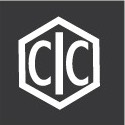June 8, 2020
The Organic Division of the Chemical Society of Canada stands with those working to dismantle the entrenched structures of discrimination based upon (but not limited to) gender, race, age, disability, religion, sexual orientation, or national origin.
In the spirit of this stance, we wish to categorically reject the views expressed in an Accepted Article in Angewandte Chemie International Edition that appeared online briefly on June 5, before it was unceremoniously removed. With a diagram depicting “diversity of work force” as a negative influence on the discipline of organic synthesis, and criticism of hiring practices that encourage diversity as amounting to “…discrimination against the most meritorious candidates,” this manuscript displayed a deeply offensive viewpoint that cannot be ignored. The author further stated that “in a social equilibrium, preferrential (sic) treatment of one group leads to disadvantages for another,” implying that promotion of diversity and efforts to break down systemic barriers undermines the rights of the overrepresented. As chemists, we understand that equilibrium does not mean equity, it is simply the balance point of a system given a set of conditions. To achieve justness, we must redefine the parameters of the equilibrium, and the author of this piece unfortunately did not recognize this crucial point.
The Division acknowledges that chemistry, like other sciences, has a long record of excluding many groups that remain severely underrepresented. This history has undoubtedly deprived our field of the contributions of many talented individuals, and we unequivocally support efforts aimed at continuing to diversify the workforce in academia, government, and industry. The fact that the author, Professor Tomáš Hudlický, is a Canadian chemist, makes it all the more urgent that we disavow and condemn the sentiments that were expressed on this subject.
We are also concerned by the section discussing “transference of skills,” which asserted the central importance of a master and apprentice model for scientific training. Professor Hudlický’s use of such terms as “unconditional submission,” and his dismissal of institutions’ efforts to shield trainees from abusive excesses by their mentors (i.e., “undue hardships that may be demanded by the ‘masters’”), are antithetical to our vision for a modern and respectful training environment. The Division also disagrees with his assertion that the absence of such submission by trainees will erode supervisors’ ability to transfer “…the maintenance of standards and integrity of research.”
The CSC Organic Division aims to promote an environment of inclusivity amongst its members and to foster diversity in our discipline. We are here to listen and learn so that we can continue to support and strengthen our community.

